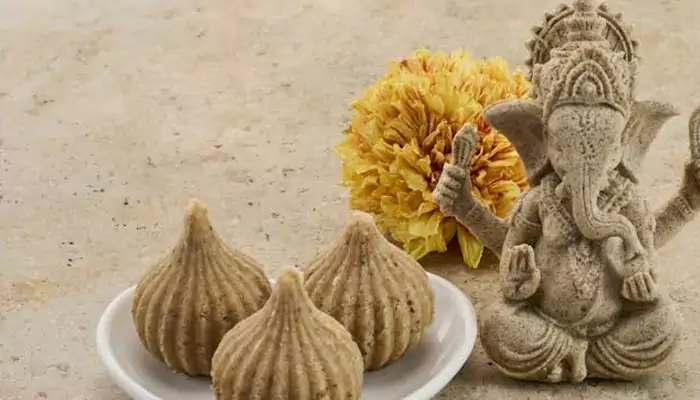
Sweet wisdom: how Modak nourishes your brain and body!
Ganesh Chaturthi is incomplete without the heavenly aroma of steaming hot ukadiche modak or the golden crispness of fried ones. Lord Ganesha’s favourite sweet isn’t just a festive indulgence; it’s a powerhouse of nutrients that science now recognizes as brain food. Beyond its divine association, the humble modak packs the perfect balance of healthy carbohydrates, proteins, fats, and micronutrients that can boost cognitive function and overall well-being. Let’s unwrap the nutritional science behind this age-old delicacy.
A modak may look like a simple dumpling, but its ingredients are carefully chosen and rich in nutrition:
A source of easily digestible carbohydrates that provide the brain with glucose — the primary fuel for concentration and alertness.
Loaded with medium-chain triglycerides (MCTs), coconut helps improve memory and focus while also offering quick energy.

Unlike refined sugar, jaggery is rich in iron, magnesium, and antioxidants. It not only boosts energy levels but also helps in reducing oxidative stress in brain cells.
Almonds, cashews, and raisins add vitamin E, omega-3 fatty acids, and proteins — all essential for sharper memory and neuron health.
The healthy fats from coconut and nuts protect brain cells, while jaggery ensures a slow, steady release of energy, keeping mental fatigue away.
Nutrients like vitamin E and healthy oils in coconut and nuts support neurotransmitters and delay age-related memory decline.
Jaggery contains minerals that help regulate serotonin — the “happy hormone.” That’s why enjoying a modak doesn’t just satisfy your sweet tooth, but also uplifts your spirit.
Rice flour carbs paired with fats create the ideal satiety balance, preventing sugar spikes and crashes, which can otherwise distract your concentration.

When we think of “brain food,” items like walnuts, salmon, or blueberries come to mind. But modak, especially the steamed ukadiche variety, can stand tall in this list. It naturally combines macro and micronutrients in just the right proportion, proving that traditional Indian sweets can be as wholesome as modern “superfoods.”
Festivals often tempt us to overindulge, but balance is key. Here’s how to enjoy modaks guilt-free:

It’s fascinating to see how age-old traditions have always been rooted in health. Our ancestors may not have spoken in terms of “neurotransmitters” or “antioxidants,” but they knew the importance of balanced foods. Offering modaks to Ganpati was perhaps also nature’s way of reminding us to nourish our brains along with our devotion.
The next time you place a freshly made modak on Ganesh’s plate, remember, you’re offering not just a sweet, but a scientifically proven brain booster. From improving memory to stabilizing mood, the ingredients in this festive delight make it a smart choice for maodern lifestyles too.
So, this Ganesh Chaturthi, relish your modaks with double joy: one for tradition, and one for health.